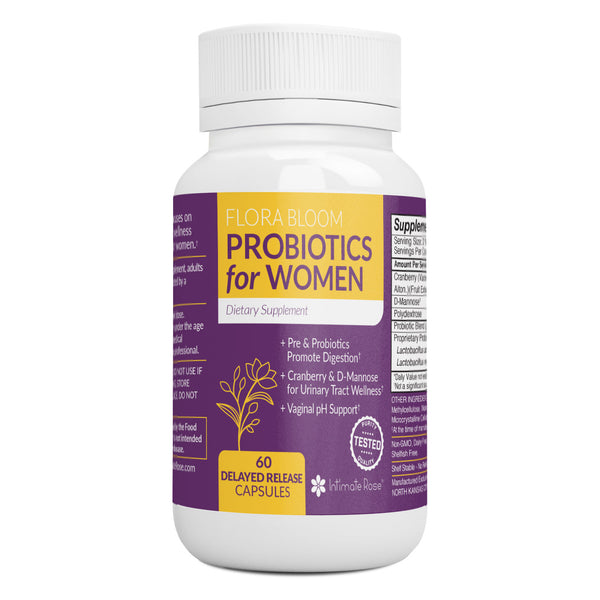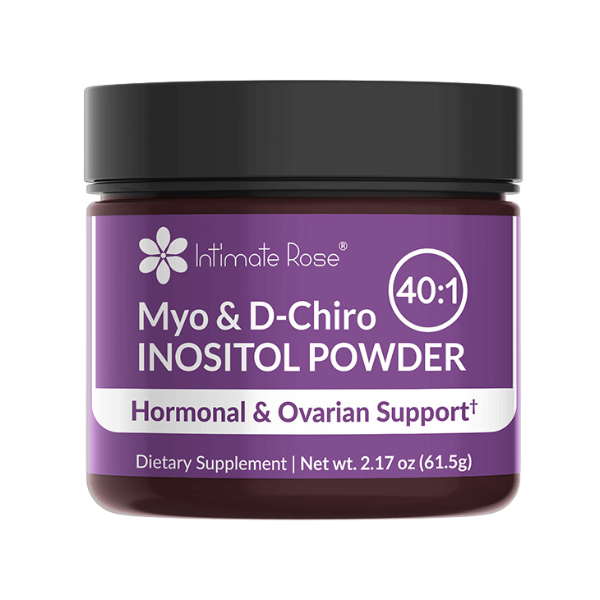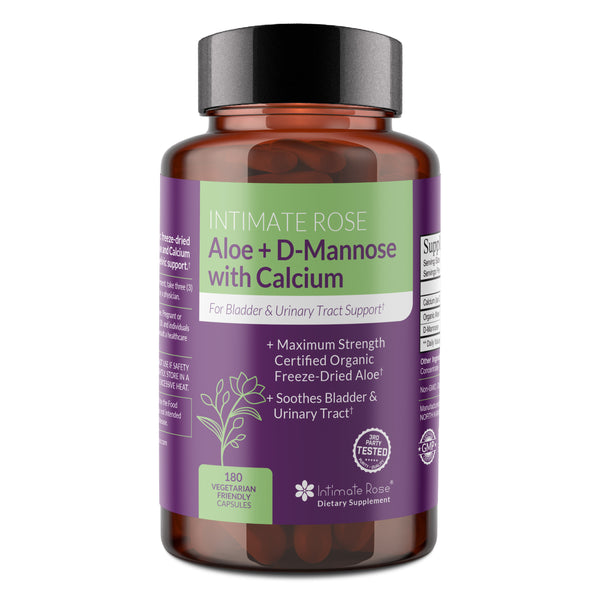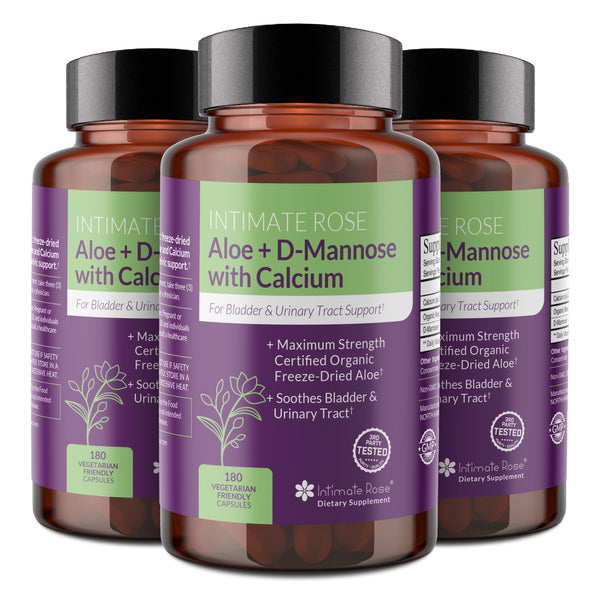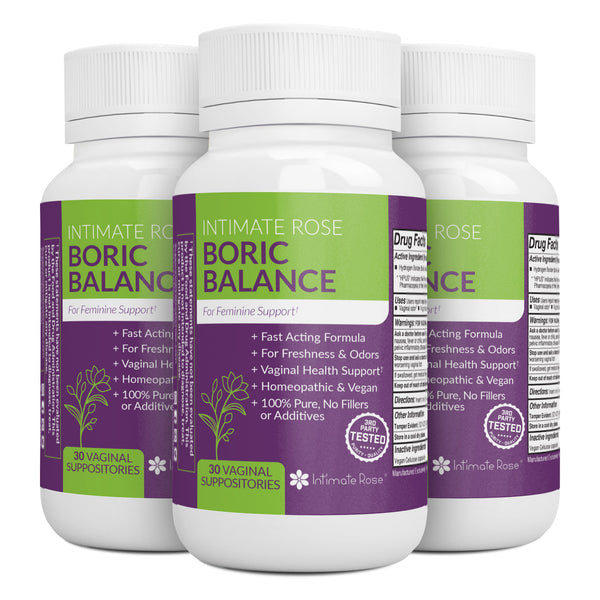Getting BV With the Same Partner | Treat Recurring BV Infections | What Happens If BV is Left Untreated?
Bacterial vaginosis (BV) is known to affect upward of 50% of women globally and recurring BV infections are also considered common.
While health experts are not entirely certain why some women suffer recurring BV infections when others don’t; former treatments, genetics, lifestyle habits, and certain hygiene practices are believed to contribute.
If you keep getting BV with the same partner, read on to find out why, and what you can do to stop recurring BV.
What is Bacterial Vaginosis?
BV is not only common, but also the most common vaginal infection among women during their reproductive years. Symptoms can include vaginal pain, itching, a burning sensation when urinating, and a white or gray-colored vaginal discharge with an unpleasant or fishy odor, particularly after intercourse.
Although researchers know that BV occurs due to an overgrowth of BVAB bacteria in the vagina, studies have not yet explained why this overgrowth happens, but it is believed to be connected to sexual activity.
Factors Known to Contribute to BV Infections
Lifestyle choices, previous BV treatments, hygiene practices, and certain habits are known to contribute to the development and recurrence of BV.
Using intrauterine devices (IUDs) as a form of protection is believed to increase women’s risk of BV, for instance. Douching, using fragranced detergents, or scented products to clean the genitals is also known to be a contributing factor to both the development of BV and recurring infections because they can alter the natural pH balance of the vagina and allow harmful bacteria to thrive.
Smoking cigarettes, which is known to lower the production of estrogen and directly affect the number of good bacteria (lactobacilli) in the vagina, can also contribute to pH imbalances that allow harmful bacteria like BVABs to flourish.

Things Off Down There?

Things Off Down There?
Why You Have Recurring BV With the Same Partner
Getting BV when having sex with the same partner could be due to one isolated factor, or several reasons. The most common of reasons for recurring bv with the same partner are:
- Vaginal pH Imbalance
- Not Using Condoms
- Infection Never Went Away
Your Vaginal pH Balance Could Be Off
The best way to determine what could be causing your recurring BV infections with the same partner is to try a process of elimination by ruling out the above-mentioned contributing factors first.
If you have been regularly douching, using scented hygiene products on your genitals, smoking, or using IUDs as protection, your vaginal pH balance could have been altered to the point that recurring BV infections easily develop each time you have sex. Removing the culprit from your routine could be all you need to stop BV infections from repeating.
Having Sex Without Condoms
If you are suffering from recurring BV infections with a long-term, male, monogamous, sexual partner and you are not using condoms, you may want to reconsider. For some women, semen can have the same effect on vaginal pH levels as douching or synthetic hygiene products.
Essentially, the healthy pH levels of a vagina and a penis are different and studies have concluded that the harmful bacteria from a penis can alter vaginal pH levels, leaving them susceptible to recurring BV infections.
The pH of semen, for instance, is alkaline with a measurement between 7.2 and 8.0, in contrast to the mildly acidic environment of a vagina, which typically measures between 3.8 and 5.0. While this difference in pH levels is naturally rectified and rebalanced in some women after sex, for others the pH imbalance can linger and leave the vagina owner open to recurring BV.
If you are suffering from recurring BV infections with a long-term, female, monogamous partner, you or your partner could be spreading BV to one another.
While BV is not an STI, it can spread between female partners, so you might want to consider using a dental dam for oral sex and a condom on sex toys for penetrative sex. It is also wise to remember that if you or your partner get BV, both of you will require treatment before resuming sexual activity.
Previous Treatment Did Not Cure the Infection
When it comes to recurring BV infections, the success of previous treatments is believed to be a significant factor. Patients may not have completed the full course of antibiotics, for example, those suffering from recurring infections could have built up a resistance to BV medication, or a full course of antibiotics simply did not clear the overgrowth of the harmful bacteria.
For example, a recent study into the effectiveness of treating BV with typically prescribed antibiotics initially concluded that 92% of participants were clear of symptoms after completing a full course. During further evaluations of the same women, however, microbial and biochemical abnormalities discovered in their vaginal secretions predicted that BVABs still lingered and infection was likely to reoccur.
All in all, the study determined that only 23% of the study participants were fully cured after a course of antibiotics, which is significantly interesting given the high percentage of recurring BV cases.
The Best Way to Treat Recurring BV Infections
With statistics showing that as many as 50% of women who get BV will experience a relapse or recurring infection within 6 months, finding a treatment that works to completely clear the infection has become more important than ever.
And new research has shown that taking a probiotic and a natural supplement called Boric Acid, in conjunction with the prescribed antibiotics, can not only speed up the healing process but also prevent recurring BV infections.
Probiotics
Ingesting good bacteria like lactobacilli in the form of oral probiotics has been proven to greatly improve vaginal health and reduce the risk of BV infections, as well as re-infection when taken daily.
By providing the body with an extra helping of good bacteria like lactobacilli the vagina has more help in maintaining a healthy pH balance that won’t be easily disrupted by outside factors like semen, fragranced detergents, or scented hygiene products.
Boric Acid
As a natural antiseptic and antimicrobial, boric acid has long been used as a natural remedy to treat female health issues. By helping to rebalance the good and harmful bacteria in the vagina, boric acid relieves typical BV symptoms like itching, burning during urination, and unpleasant vaginal discharge.
Our Boric Acid Balance Suppositories are 100% natural, easy to use, and were created to not only help to treat BV infections but also prevent them from recurring.
Do Boric Acid Suppositories Work Quickly?
When taken in conjunction with antibiotics, you can expect the Boric Acid Balance Suppositories from Intimate Rose to improve vaginal pain and irritation from BV within 24-48 hours. Designed to dissolve in the vagina within a few minutes, BV symptoms like a feeling of stinging while peeing, nasty-smelling discharge, and itching typically reduce in intensity with each passing day.
To treat an initial BV infection, female health experts recommend taking a complete course of boric acid in conjunction with antibiotics and a daily probiotic.
Women who have already experienced repeatedly recurring BV infections are advised to take an ongoing probiotic and speak with their healthcare practitioner about taking a consistent daily intake of boric acid until all traces of BVABs are eliminated from vaginal secretions.
The Ultimate Vaginal Bundle

Is BV Sexually Transmitted?
Whether or not BV is a sexually transmitted infection (STI) has been a matter of research and discussion for over 50 years. Even though it stems from an imbalance of good and harmful bacteria in the vagina that appears to be caused by sex, BV is not an infection that is passed from one partner to another during intercourse and is therefore not considered an STI.
Although sexual activity is a central factor in the occurrence of BV, other factors are also believed to contribute to both its initial development and its recurrence.
What Happens If BV is Left Untreated?
If left untreated, BV increases women’s risk of contracting sexually transmitted infections like chlamydia, gonorrhea, and HIV. Untreated BV infections are also known to cause pelvic inflammatory disease, and miscarriages or preterm births in women that are pregnant.
Conclusion
Although BV is linked to sexual activity, it is not considered a sexually transmitted infection but rather something that is caused by the imbalance of good and harmful bacteria in the vagina. Why some women keep getting BV with the same partner is also not fully understood.
However, having sex without condoms, upsetting the vaginal pH with douching or synthetic hygiene products, smoking, and previously unsuccessful treatments are all considered contributing factors for recurring BV infections.
To stop recurring BV infections, female health experts recommend taking a daily probiotic and a boric acid vaginal suppository in conjunction with the antibiotic prescribed by your doctor. It is also important to eliminate any outside factors that could alter the natural vaginal pH levels.
References
Centers for Disease Control & Prevention – Bacterial Vaginosis - https://www.cdc.gov/std/bv/stdfact-bacterial-vaginosis.htm
Library of Medicine - Women’s Views and Experiences of the Triggers for Onset of Bacterial Vaginosis and Exacerbating Factors Associated with Recurrence - https://www.ncbi.nlm.nih.gov/pmc/articles/PMC4773144/
Office on Women’s Health – Bacterial Vaginosis - https://www.womenshealth.gov/a-z-topics/bacterial-vaginosis
Hindawi – Association between Semen Exposure and Incident Bacterial Vaginosis -
https://www.hindawi.com/journals/idog/2011/842652/
Epidemiology – Condom Use and its Association With Bacterial Vaginosis and Associated Vaginal Microflora - https://journals.lww.com/epidem/Fulltext/2007/11000/Condom_Use_and_its_Association_With_Bacterial.9.aspx
National Library of Medicine - The Role of Probiotics in Vaginal Health - https://www.ncbi.nlm.nih.gov/pmc/articles/PMC9366906/
Cleveland Clinic – Boric Acid Suppository - https://my.clevelandclinic.org/health/drugs/19641-boric-acid-vaginal-suppository
National Center for Biotechnology Information – Clinicians' use of Intravaginal Boric Acid Maintenance Therapy for Recurrent Vulvovaginal Candidiasis and Bacterial Vaginosis - https://www.ncbi.nlm.nih.gov/pmc/articles/PMC6878170/

Things Off Down There?




